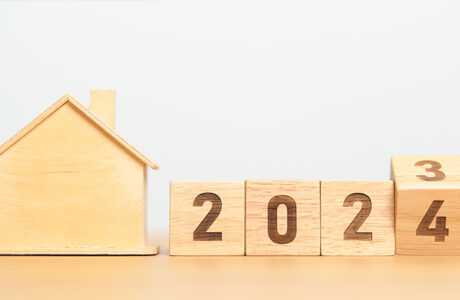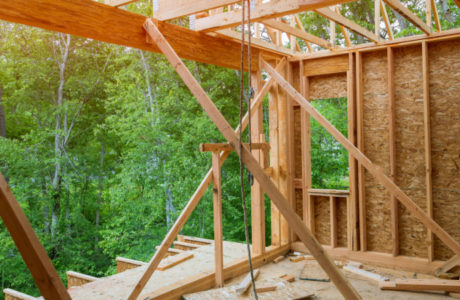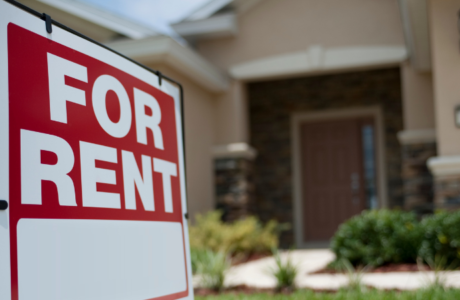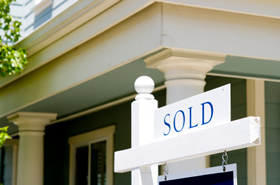Thinking of buying your first home? Congratulations! Becoming a homeowner can be one of the most rewarding and fulfilling things you can do in your adult life. Buying a home signifies that you’re established, working toward building your wealth, and that you are independent and able to provide for yourself or your family. But what if you can’t afford to buy a home outright? Well, you’re certainly not alone. With the median U.S. home price at $188,900*, it’s no wonder the majority of people rely on a home loan when making their purchase. But don’t home loans require a down payment, great credit, and so on? Not necessarily.
We have a few suggestions for financing that are generally well-suited to first time buyers. Review them below and then contact a qualified home loan professional for details.
1. FHA Loans
FHA Loans may be ideal for the first time buyer who has a little bit of cash to use for a down payment. With FHA loans, the required down payment is usually 3.5%. You can put more down if you like, but 3.5% is the minimum.
FHA loans are also good for home buyers who don’t have perfect credit. Since the loan is backed by the Federal Housing Administration (FHA), it provides mortgage lenders with protection against the borrower defaulting on the loan. In other words, if you stop making your mortgage payment, your lender will file a claim with the FHA and get most of their money back. Because of this extra layer of protection, FHA-approved lenders can offer FHA Loans to borrowers who may have lower credit scores aka borrowers who are more of a credit risk.
Ordinarily, a low credit score might cost borrowers more by way of paying a higher interest rate or it may prevent the borrower from being approved for a loan in the first place.
Want to know more about FHA Loans in Texas? Contact us to discuss the benefits of this program and receive a free rate quote.
2. USDA Loans
USDA Loans are backed by the U.S. Department of Agriculture. Their main purpose is to help strengthen communities and local economies by stimulating homeownership in less-developed areas. How does the program do this? By offering qualified borrowers zero money down home financing on eligible properties.
Basically, if a home is located in a USDA-approved zone, and the borrower meets the loan’s criteria, that borrower can purchase said home without having to make a down payment. There are very specific rules for USDA loans – for instance, they can only be used for the borrower’s primary residence and borrowers have to earn below certain income thresholds (yes, you can make too much money to qualify for a USDA loan) – but if you meet the requirements for USDA financing and you don’t have any cash set aside for a down payment, it can be one of the best options for financing.
USDA Loans also feature no private mortgage insurance! Learn more here.
3. VA Loans
If you are active duty military, a military veteran or a surviving spouse of a military veteran, you may be able to take advantage of $0 down home financing through a VA Loan. VA Loans are backed by the Department of Veterans Affairs and offer up to 100% financing for qualified borrowers. As you might imagine, VA Loans have very specific rules for eligibility so they definitely aren’t an option for everyone. However, if you are eligible for VA home financing, it may be the best way to finance your first home. Talk to your mortgage professional for details.
Looking for a VA Loan in Texas? We may be able to help.
4. Conventional Fixed Rate Mortgages
First time buyers aren’t limited to government-backed home loans. Conventional mortgages can often prove to be the best solution to many home buyers’ financing needs.
Conventional mortgages may be most appropriate for buyers who do have a substantial amount of cash saved up for a down payment, as they generally require 20% down in order for the buyer to avoid paying costly private mortgage insurance. If you have enough in cash to put 20% down, a conventional loan may be the more affordable option in the long run. Otherwise, you’ll be paying for PMI or funding fees or higher interest rates, depending on the type of loan.
If you do decide to go the conventional route, consider a fixed rate over an adjustable rate. Fixed rate mortgages provide stability and predictability in your mortgage rate, helping your monthly mortgage payment stay pretty much the same. By contrast, an adjustable rate mortgage could lead to your monthly payment fluctuating after a few years and then possibly every year afterward. For first time homeowners, it may be difficult to predict exactly what their household bills will amount to, making it extra risky to choose an adjustable rate option.
Keep in mind, these are merely suggestions and offered for educational purposes only. You’ll need to speak with a licensed mortgage professional if you want to get a better idea of which loan type is best for your individual needs. If you’re in Texas, please reach out to us for assistance: (972) 591-3097







































Comments are closed.